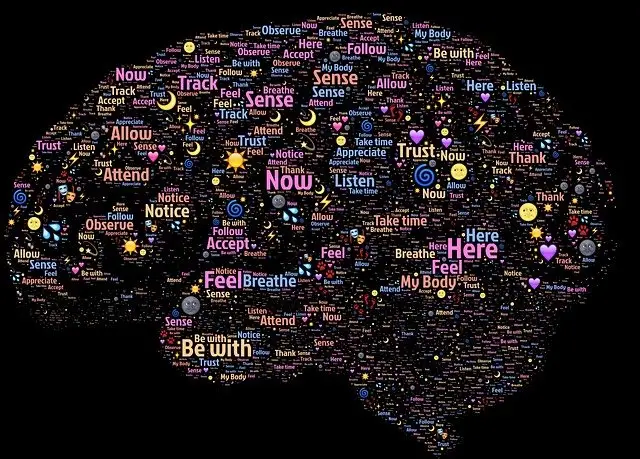Those with Narcissistic Personality Disordered parents have a lot of healing to do, but it can be done. The defences that were built in childhood need to be carefully dismantled and replaced with the characteristics of assertiveness and confidence.
Many people who grew up with a parental figure with narcissistic traits will have known that there was something very wrong with their caregiver but were not able to understand what it was. By the time they reached adulthood they may have developed a personality disorder, Complex PTSD, a panic disorder or co-dependency. They may self-medicate with addictions of all kinds.
Healing takes place through:
1. Knowledge – read everything you can about psychological subjects (like NPD, Complex PTSD and co-dependency) which are relevant to you. Learning leads to:
2. Understanding – you will develop an understanding of yourself and things will start to make sense which leads to:
3. Acceptance of yourself – this means you will stop judging yourself so harshly and your self-worth will increase which leads to:
4. Self-compassion – you will develop compassion towards yourself and this leads to:
5. Self-awareness – the fear of looking within yourself will disappear and with self-awareness comes the ability to recognise patterns in your behaviour which leads to:
6. Change – you will have the knowledge and ability to change your life.
Knowledge and Understanding
In pursuit of healing, understanding NPD can be liberating as children of narcissists realise that the treatment they received was impersonal because the narcissist cannot see their child as a person, the narcissist can only see their own needs. Knowledge leads to self-acceptance.
Other topics which are useful to learn about are: Complex Post Traumatic Stress Disorder, Co-dependency and Childhood Trauma.
Self-compassion
Children of narcissists will often have little self-compassion. Self-compassion can be learnt and practiced. It is about treating yourself in the way you would treat a good friend.
Changing the way we think changes our brain structure. Please see Neuroplasticity.
We change our brains through a combination of processing the suppressed emotional pain and becoming more mindful, self-aware and compassionate towards ourselves.
Self-Awareness and Triggers
Many children of narcissists will have some self-awareness but much of their emotional life will be repressed. Knowledge of NPD and the understanding that this brings will lead to acceptance of the self and this opens up self-awareness.
The development of self-awareness slowly brings the suppressed feelings and thoughts into conscious awareness. Self-awareness combined with self-acceptance gives individuals the ability to change their behaviours. The unconscious needs to be made conscious so that it is no longer an influence that seems, at times, to be beyond control.
Gaining awareness of the inner self makes change possible.
Self-awareness can be developed by just noticing our feelings in an inquisitive and non-judgmental way, i.e., “OK, I am feeling really angry now, I wonder why? What happened, what was the trigger?” Sometimes it can be obvious, but at other times it is not immediately apparent. Inquisitiveness helps to develop new neurons in the prefrontal cortex area of the brain which is responsible for reasoning and logic (changes then happen through neuroplasticity). When we are triggered, defence mechanisms in other parts of the brain which do not have rational, logical thinking skills have taken over in an attempt to protect.
There are constant triggers in the environment which can evoke strong and sometimes extreme emotions and reactions. Try not to berate yourself for anything you are feeling. Just notice it.
Developing our self-awareness helps to keep our prefrontal cortex (the reasoning centre of the brain) ‘online’ (as opposed to the mammalian/reptilian parts of our brains being in charge) so that habitual thought patterns can be disrupted and healing can take place. Healing cannot take place without the development of self-awareness.
Basically, the software of the brain is being updated through knowledge and understanding, mindfulness, self-acceptance, self-compassion and self-awareness.
Please see Triggers and Triggering
Mindfulness
Mindfulness is all about getting to know yourself. Children of narcissists often think that their symptoms of trauma are their character (such as an addiction, people pleasing or irritability) when they are actually coping mechanisms which will fade with healing. It helps to get ‘back in touch’ with the body and emotions and develop self-awareness. It is the opposite of the dissociation that has often taken place for someone with trauma.
Grounding techniques which calm the nervous system are really important for people who have Complex PTSD.
Deep breathing exercises are useful. If you are feeling stressed, the 4-7-8 technique may help. This calms down the nervous system if it becomes dysregulated (hyper or hypoaroused). Breathe in for the count of 4, hold it for the count of 7 and breathe out for the count of 8. Doing just 2 or 3 of these can really help the body to feel calm. Please see link to 4-7-8 technique here.
Other grounding techniques can be found here.
Mindfulness exercises and meditations can be found on YouTube. If this feels uncomfortable you could perhaps try 5 minutes a day or 5 minutes once a week and build on that.
Mindfulness Course
There is a mindfulness course run online. This can be very useful for getting in touch with your feelings. This costs around £30.
https://www.bemindfulonline.com/
Meditation Website
You can register on the website below for free meditations.
Your Free Voyage | Journey of the Mind | Meditainment
Self-care
Many children of narcissists do not have high levels of self-care. They may not eat healthily, exercise or sleep well or they may have poor dental health. This can be changed. It may feel uncomfortable to do nice things for ourselves to begin with (this is due to conditioning) but with persistence we can change the way we think.
Please see the Brain and Neuroplasticity
There is a self-care quiz which assesses physical, emotional, social, spiritual and professional self-care here.
Hobbies and Interests
Many children of narcissists may not know what they themselves enjoy (as they are often people-pleasers who put their own needs and wants last) and may go along with whatever hobbies their friends and partners have.
You could experiment with some different hobbies and see if there are any you enjoy. Perhaps music, sport, art, reading, writing, walking or photography or cooking. There may be feelings of guilt for doing things for yourself which can be very uncomfortable. Just notice these feelings (in a non-judgmental way – as much as is possible).
Balance
Try to find a balance between doing for others and doing for yourself, and between working and resting. Some children of narcissists may find themselves always doing for others and working a lot either inside or outside of the home. They may feel guilty if they do things for themselves. Please see Chronic People Pleasing.
Counselling
Counselling can help a person overcome narcissistic abuse. Narcissistic abuse can lead to complex PTSD (which can be caused by childhood abuse or having a parent who is in addiction, has a personality disorder, is mentally ill or emotionally neglectful). This can manifest as irritability, depression, insomnia, feeling emotionally overwhelmed, having nightmares or flashbacks, feeling shame or worthlessness, panic attacks, substance abuse, eating disorders, chronic pain and feelings of not knowing who you are or feeling unreal or out of body among other feelings and symptoms.
I have an in-depth understanding of the outcomes of narcissistic abuse and can help you to understand what has happened to you which will help you to recover.



